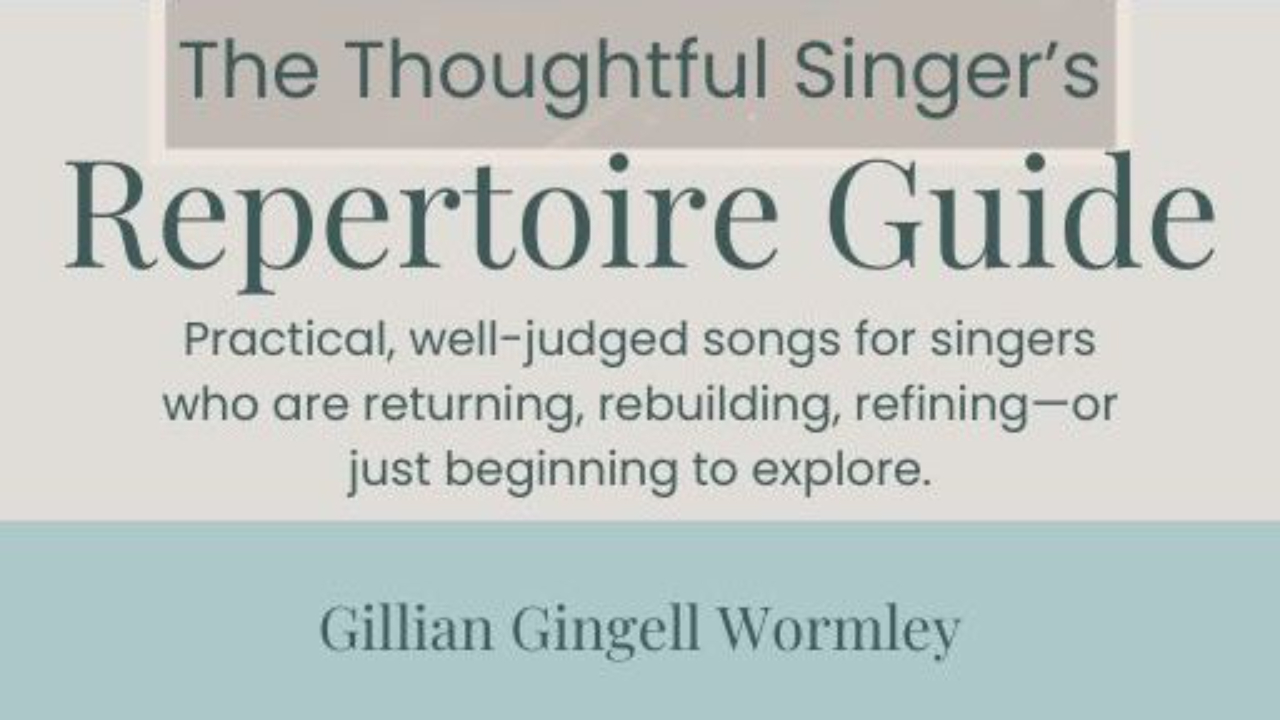Sound advice for singers: finding your authentic voice

Do you know where the root of your vocal problems lies?
Finding your authentic singing voice starts with the way you speak - as do all those little lifetime foibles we create along the way.
Look to the way you speak for weaknesses and physical stumbles - take care to know what they are so that they do not leach their way into how you produce your singing sound.
Fabulous article
I remember reading an article written by then VoiceCouncil writer Kathy Alexander following an interview with Speech-Language Therapist, Sue M Jones. In response to this question,
“Do you ever encounter singers who have an issue with their voice that stems from the way they talk?”
Sue confirmed that many singers experiencing problems with their singing voice actually have problems with excess muscle tension in the production of their speaking voice.
It’s easy to imagine a scenario where we are tempted to use more voice than we should; this, in turn, can lead to habitual constriction in the vocal tract. Not good for singers!
Sue further explained:
The gestures required in the vocal tract for singing are much more complex than for speech. Also, the way speaking and singing are connected to emotion may be different. Singing (good singing anyway) is closely related to emotion. There is some evidence that the neural pathways for speech and singing may be different.
The article really grabbed my attention with the next point about what constitutes the best ‘when-to-completely-rest-the-voice’ advice for singers. Sue gave two instances when complete rest would be required:
- After an operation on the vocal folds.
- In the case of acute laryngeal infection.
... but didn’t condone vocal rest in all circumstances:
Some doctors recommend voice rest if a singer is experiencing a voice problem that doesn't require surgery. …If a singer is experiencing voice problems they need a full diagnostic assessment since the issue is often related to muscle tension which will not improve with voice rest.
When a vocal problem is due to muscle tension but no surgery has been required, therapy should be carried out by a speech therapist specialising in voice disorders. Following the voice therapy, further work with a singing teacher will also be of benefit.
I would like to further qualify that last sentence by inserting the word GOOD before singing teacher….
Alexander Technique wisdom
Karen Evans, an Alexander Technique friend and teacher picked up on my shared link to the VoiceCouncil article via Twitter. In a consequent dialogue, where I explained how I have a few students who manifest 'speaking voice problems’, she said:
"It makes such sense from an Alexander Technique point of view…The article relates one of the basic principles of the Alexander Technique. If we have habitual excess muscle tension in any part of the body, that habitual tension is likely to be present in any activity that involves that part of the body. It might be more forceful or less forceful, but it will be there.
So, for example, I have in mind someone who habitually compresses their spine into a definite ‘hinge’ point just below their waist. You can see it when they stand; it is exaggerated slightly when they walk, but exaggerated many times when they play badminton. And this person has a lot of back injury.
Similarly with the throat mechanisms. If the action of producing sound or communicating triggers a habitual overdoing of something in the throat, you will very likely see it to a moderate extent when someone speaks, but much more so when they sing, shout or say their lines.
These habits can be stopped. You can re-train your thinking so you don’t create the over tension. However, it’s difficult if not impossible to do it just for one activity. You need to stop the habit in all the related activities. So my friend with the back would need to rethink their standing, walking, badminton, and probably quite a lot of other things.
Your singer would need to look at her bad habits across a range of vocal activities. But that’s ok, because once you start to shift the habit for one, it picks up momentum, and everything you tackle raises your performance in all the other related activities as well.
Karen’s wise words are really so important - and the philosophy of AT is key to recovery for anyone experiencing vocal problems, spoken or sung. I’m grateful for the points she raises and her continued professional interest.
Case study
Frequent readers of my blog posts back then knew of a post I had written about one of my past NTU students, Susan, who had been diagnosed with anterior nodules. I’ve written about the basis of Susan’s vocal problem and the beginning of her therapy journey in previous posts on my Little Soprano website and I’m really pleased that she agreed to be the subject of a further 'In the LS Spotlight’,
Next steps
If you are interested in online mentoring and guidance because you are experiencing some vocal learning issues and would like to benefit from good advice and teaching within a supportive community of singers, take a look at Virtually Vocalise. It might just be what you need.

P.S.
I know many classical singers who are sometimes frustrated with the voice that they have. Is that you? Tell me about what vocally interests you. What makes you tick as a singer? Take my short questionnaire and guide me toward what you need as a classical singer. https://www.thevoiceschool.co.uk/your_voice_your_singing_story_matters
Curious about singing basics? Let's get you started with the right learning tools.
Download my free need-to-know vocal essentials guide for singers, vocal technique principles simply explained.







